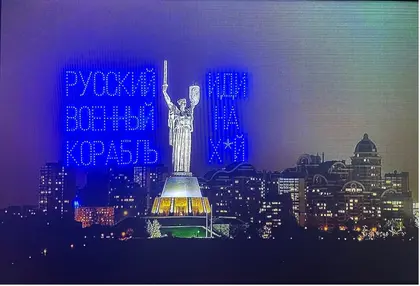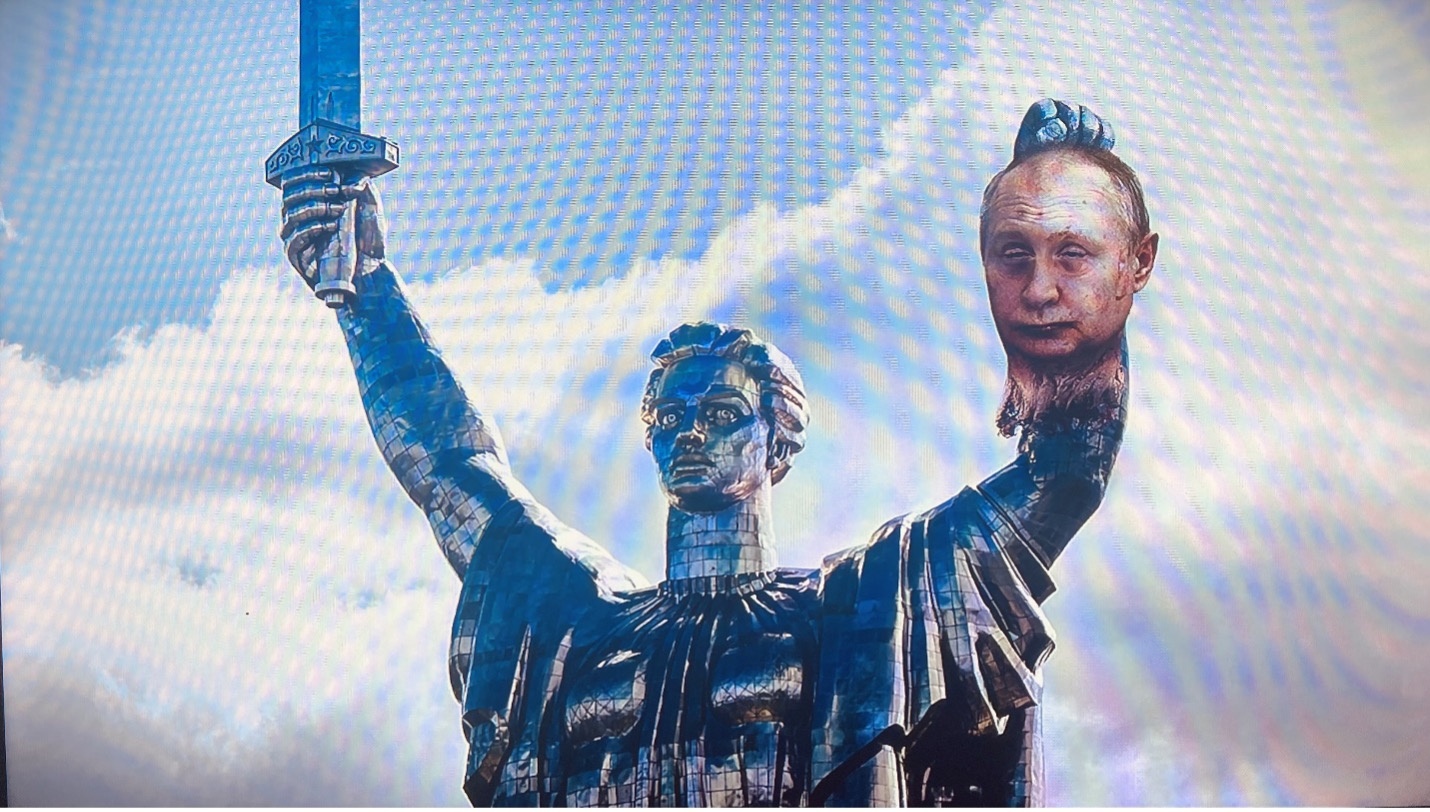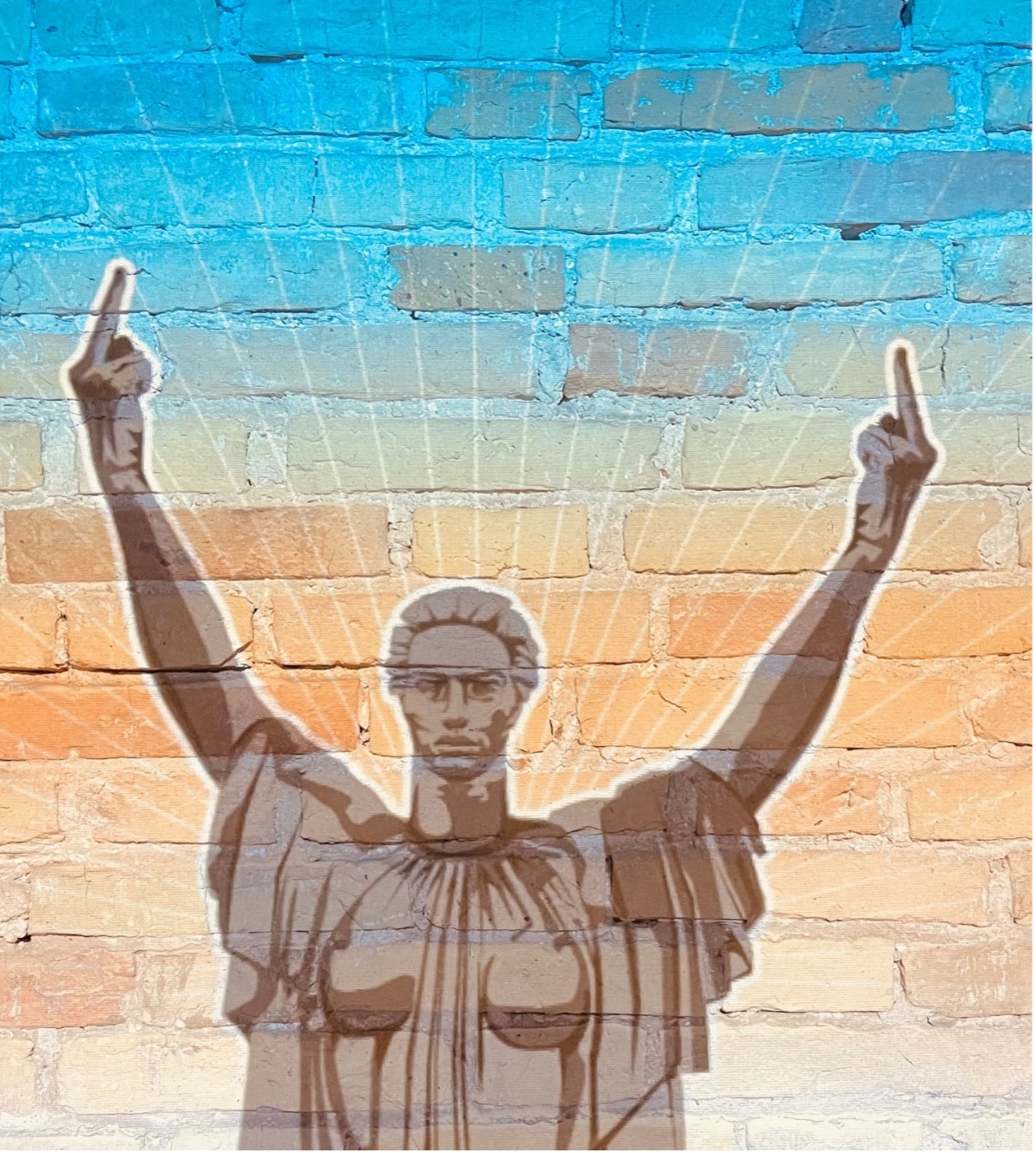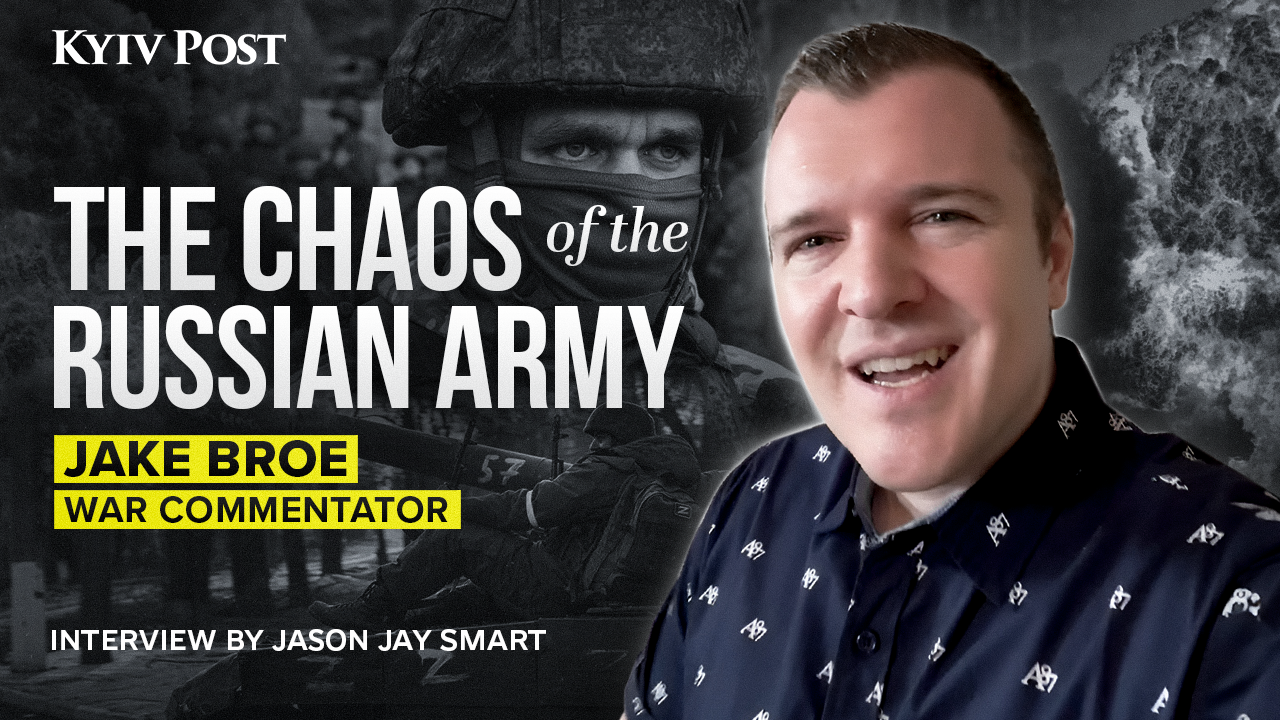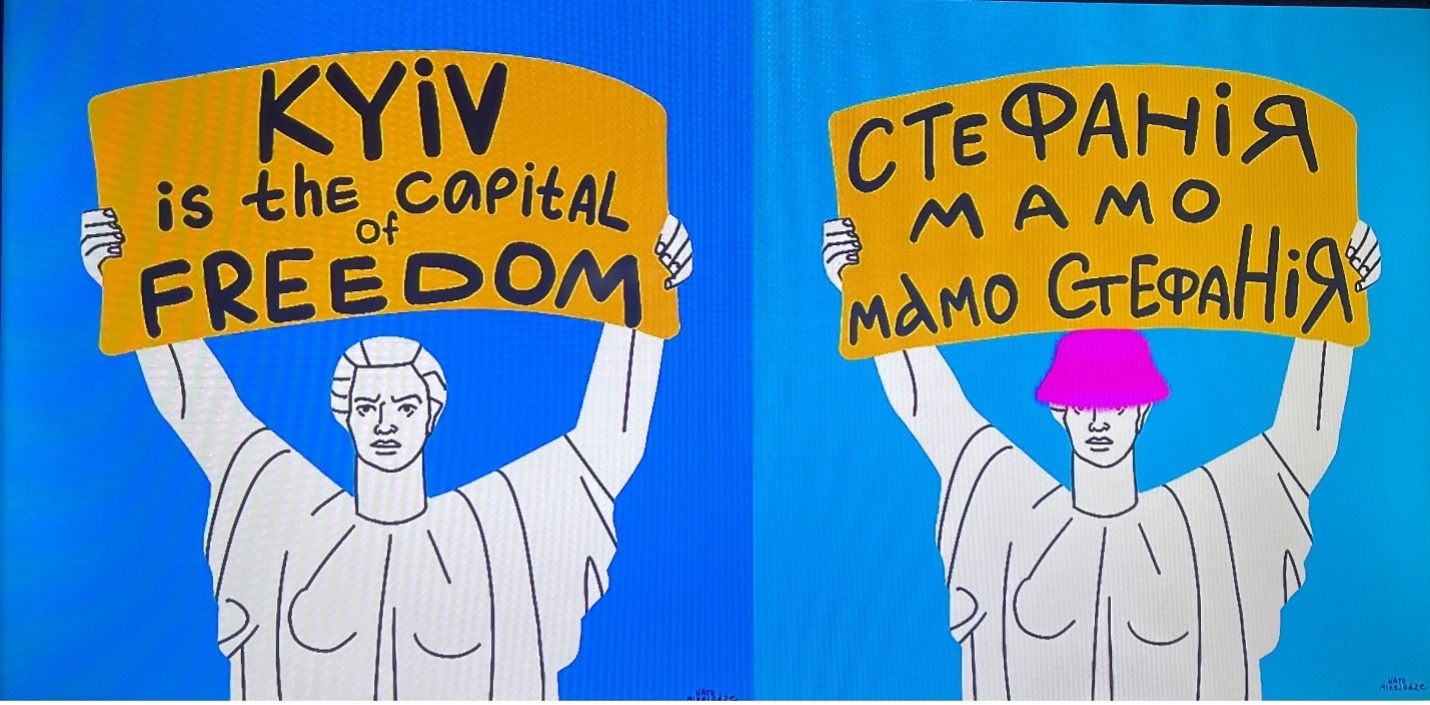On the eve of Independence Day, a new exhibition, “Motherland. Redefining,” opened at the National Museum of the History of Ukraine in the Second World War. The exhibition showcases how Kyiv’s “Motherland Monument” has been transformed and re-interpreted in the Ukrainian consciousness.
The monument crowns the main building of Kyiv’s Memorial Complex – first opened on Victory Day in 1981.
JOIN US ON TELEGRAM
Follow our coverage of the war on the @Kyivpost_official.
Created by sculptor Vasyl Borodai, the grand and majestic structure depicts the figure of a woman bearing a shield and a sword and stands on a 40-meter-high conical pedestal. The sculpture itself is 62 meters high (making a total height of 102 meters) and weighs about 500 tons.
The exhibition is a response by museum staff to the public debate surrounding the symbolism of Europe’s tallest metal sculpture in Kyiv.
Ukrainian society has long ceased to perceive the “Motherland” as a Soviet monument. Indeed, since Feb. 24, when Russian launched its full-scale invasion of Ukraine, it has been a recognizable visual image of Ukrainian resistance to Russian aggression.
The exhibition presents a collection of images and interpretations of the monument, which started to appear online in the wake of the renewed invasion. These images are projected on to the walls of the 18th-century Moscow Gate of the Old Pechersk Fortress.
The monument has recently been illuminated with the colors of the State Flag of Ukraine. Online, it has been re-imagined in a number of ways, often containing the main message: “Motherland is a symbol of the indomitability of Ukraine.”
The Minister of Culture and Information Policy of Ukraine, Oleksandr Tkachenko, visited the exhibition’s opening event.
“We watched the rapid transformation of the sculpture and its development as a new, reinterpreted symbol of the struggle and inevitable victory of Ukrainians.”
He added: “The most defining thing for artists and content makers is the orientation of the sculpture towards Moscow, with the sword and shield in its hands becoming symbolic weapons.”
Tkachenko noted a pressing need to change the coat of arms of the USSR on the shield of the monument to the coat of arms of Ukraine.
You can also highlight the text and press Ctrl + Enter


